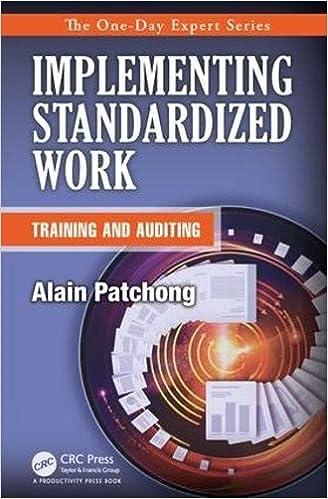Question
Per unit data concerning a product manufactured by XYZ Co. are given below: Selling price $100 Direct materials, direct labor, and variable manufacturing overhead 40
Per unit data concerning a product manufactured by XYZ Co. are given below:
| Selling price | $100 |
| Direct materials, direct labor, and variable manufacturing overhead | 40 |
| Fixed manufacturing overhead | 25 |
| Variable selling expense | 10 |
| Fixed selling and administrative expense | 7 |
The above per unit data are based on annual production of 10,000 units. The company has received a special, one-time-only order for 500 units of the product with a selling price of $60. There would be no variable selling expense on this special order and the total fixed manufacturing overhead and total fixed selling and administrative expenses of the company would not be affected by the order. If XYZ accepts the order, it will have no effect on other customers. Assuming that XYZ has excess capacity and can fill the order without cutting back on the production of any product, what is the financial advantage (disadvantage) of company accepting the special order?
| A. | $11,000 financial disadvantage | |
| B. | $20,000 financial disadvantage | |
| C. | $10,000 financial advantage | |
| D. | $5,000 financial advantage |
-
XYZ manufactures and sells a number of products, including Product G. Results for last year for the manufacture and sale of Product G are as follows:
Sales
$50,000
Less expenses:
Variable costs
$40,000
Fixed costs
36,000
76,000
Net operating loss
$(26,000)
XYZ is trying to decide whether or not to discontinue Product G. Two thirds of fixed costs are avoidable if the product is dropped. Assume that dropping Product G will have no effect on other products. What is the financial advantage (disadvantage) of dropping Product G?
A. $14,000 financial advantage
B. $26,000 financial advantage
C. $2,000 financial advantage
D. $40,000 financial advantage
-
Which of the following equation is NOT valid regarding spending variances shown in the flexible budget performance report?
A. Total spending variance for fixed overhead = fixed overhead budget variance + fixed overhead volume variance.
B. Total spending variance for direct labor = labor rate variance + labor efficiency variance.
C. Total spending variance for variable overhead = variable overhead rate variance + variable overhead efficiency variance.
D. Total spending variance for direct materials = material price variance + material quantity variance, if actual quantity purchased = actual quantity used.
-
Suppose a company applies variable manufacturing overhead to products on the basis of direct labor-hours. If the companys labor efficiency variance is favorable, which of the following statement is TRUE?
A. The companys fixed overhead volume variance must be favorable as well.
B. The companys variable overhead rate variance must be favorable as well.
C. The companys labor rate variance must be favorable as well.
D. The companys variable overhead efficiency variance must be favorable as well.
Step by Step Solution
There are 3 Steps involved in it
Step: 1

Get Instant Access to Expert-Tailored Solutions
See step-by-step solutions with expert insights and AI powered tools for academic success
Step: 2

Step: 3

Ace Your Homework with AI
Get the answers you need in no time with our AI-driven, step-by-step assistance
Get Started


